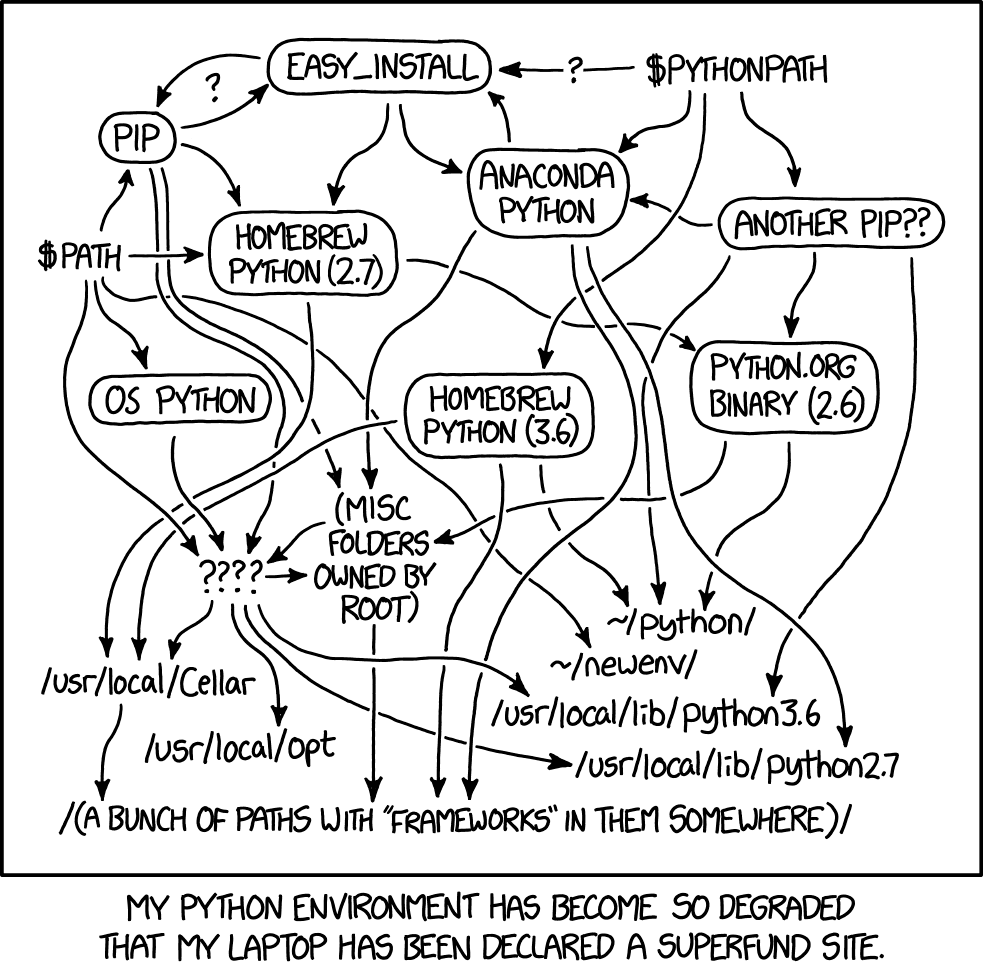Per the scikit-learn user guide, I installed scikit-learn using pip install -U scikit-learn.
So using pip search scikit-learn, I get this search result:
scikit-learn - A set of python modules for machine learning and data mining
INSTALLED: 0.12.1 (latest)
But when I go into Python and try to import sklearn, I get an ImportError: No module named sklearn. This really should have just worked.
I am using Enthought's free distribution of Python (2.7.3) on a Mac OS 10.6.8 with NumPy 1.6.1 and SciPy 0.10.1. Yes, I'm aware that EPD Free comes with scikit-learn but pip should have upgraded my version so that I can actually use scikit-learn.


pipwith is the python that gets access to the module. – Papposepython --versionfrom the command line andimport sys;sys.versionin the interactive enviroment. The command line version should give you the version pip used. – Rejuvenatesys.path– Rejuvenate